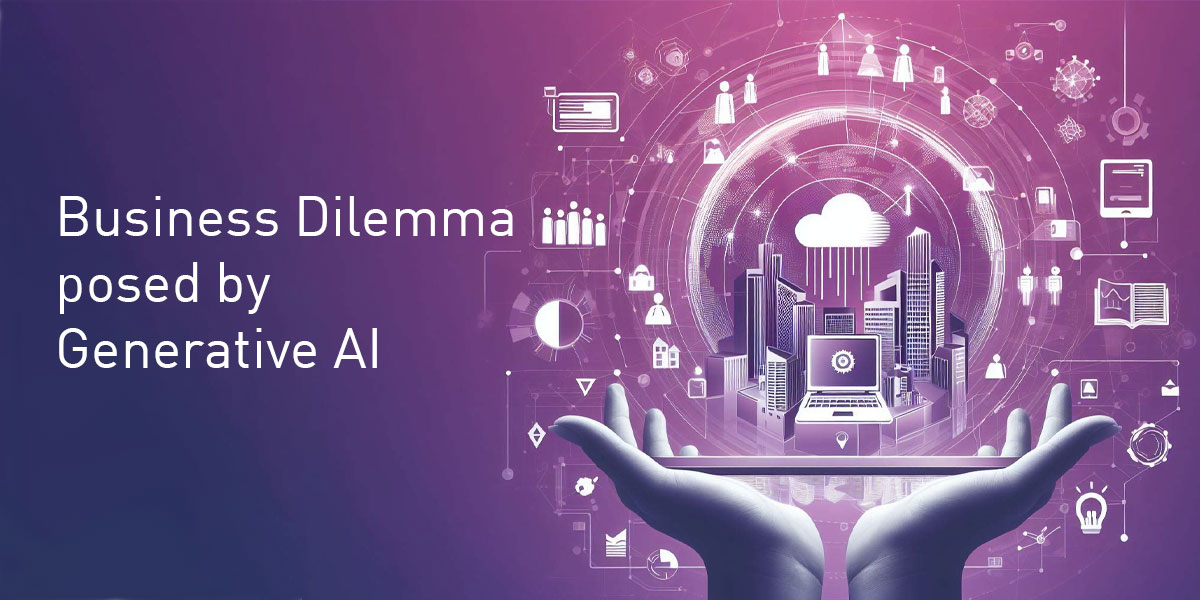Necessary cookies are absolutely essential for the website to function properly. These cookies ensure basic functionalities and security features of the website, anonymously.

Is Google's new machine really 47 years ahead of us?
It’s been a month of milestones in the quantum world, with both IBM and Google laying claim to Quantum Supremacy. What is this new technology and how might it affect your work?
For years quantum computing has been a theoretical goal. For those of us following the developments of quantum computing for some time, the milestone of ‘Quantum will reach maturity 7 years from today’ seems to have been quoted for as many years as we’ve been following.
What can quantum computing do?
The promise of quantum is that it will help us to solve intangible and complex problems and this is no small matter. We have accumulated enormous data sets over the decades. The petabytes of National Health data in the UK, have been tracking almost every citizens’ health from birth to death for 75 years (although not all records over that time are digitized). We don’t benefit from that population data because we still have to sample to get the data down to a size that current machines can process. We have environment sensors collecting data, and each data point is part of complex chains of cause and effect, none of which we can fully monitor. We have a branch of mathematics that works with complex entanglement, but we don’t have a machine that can really put the mathematics through its paces with a large data set.
Quantum computing may resolve that. It re-writes the code that makes code better at a fundamental level. In brief, this means that instead of being based on a binary system of noughts and ones, quantum computing harnesses the possibility of quantum mechanics where things can be in two states at the same time. The effect is a massive exponential growth in processing power.
The Quantum Supremacy Conundrum
We don’t yet have a quantum computer that can solve real world problems, but a range of teams are working on the development of one. Google’s announcement that their machine has solved a problem 47 years ahead of a classical computer is a great positive sign that the technology is progressing steadily.
The concept of quantum supremacy is not, as the name worrying implies, a takeover by the machines, but the challenge for a quantum machine to run an analytics process faster than the best classical computer available today. So if Google’s Sycamore did that and by an impressive 46 years, why aren’t we celebrating? Well, for many, it’s not enough to run an engineering proof of concept. They want results with real data.
The Quantum Internet
When we get a completely new quantum internet infrastructure (the existing one is not compatible with quantum), it seems unlikely it will be an internet of documents. Quantum advantage comes from data alone. It also seems unlikely that we will get a worldwide quantum internet. Many nations are already trying to withdraw in retrospect from the global social experiment that is the internet we have today.
Quantum software is here
Should you be worried about the impact of quantum on your career? Well, you may want to explore this further. We are already using hybrid systems - software that uses some of the properties of quantum mechanics on a classical machine using an algorithm that fans of Sesame Street will love - Grover’s algorithm. Some companies, like Caixa Bank, are already enjoying quantum advantages with their churn data, among other applications. This software gains some speed and efficiency and greater insight, but they are still small advantages at the moment. You can access the PyZX library on github right now at:pip install git+https://github.com/Quantomatic/pyzx.
Quantum regulation and the future
The technology has not even been developed yet but several governments are looking at getting standards in place and possibly legislating these technologies before they mature. Lessons have been learned from the roll out of machine learning algorithms on the general public before their limitations had been fully understood. Quantum computing processes take the concept of ‘black boxed’ technologies, where humans cannot explain how the machine got the response it got, to another level. There is also the question of the environmental damage that they can cause. Quantum computers are very energy intensive.
What this month’s media battles show us is that quantum computers are on their way and now is the best time to prepare.






